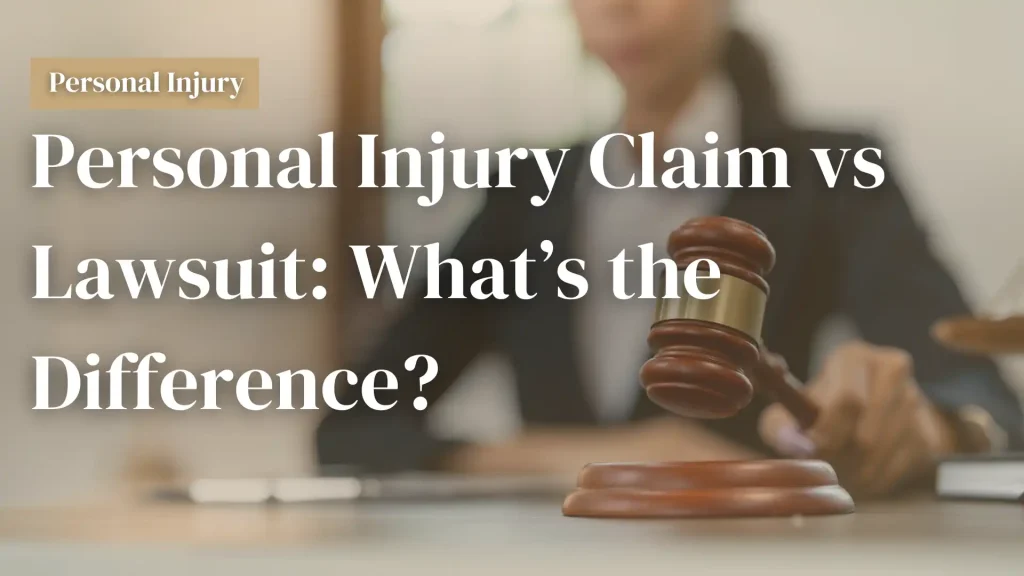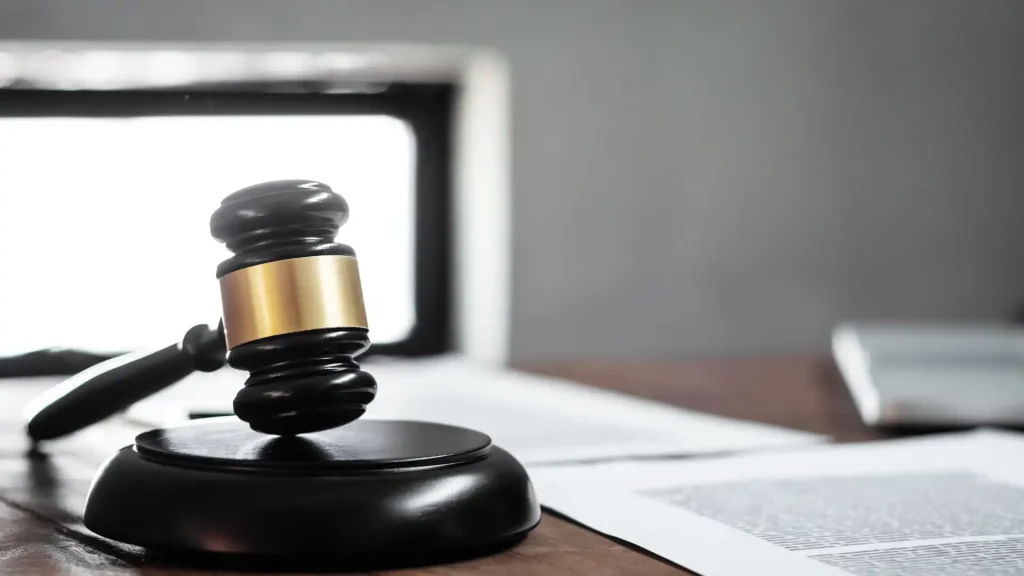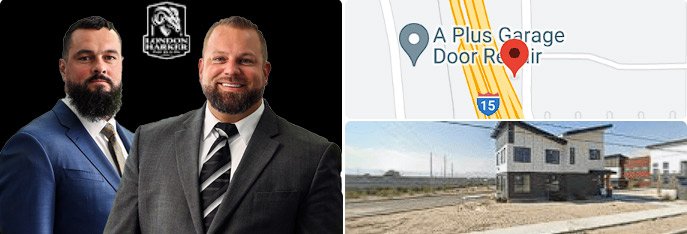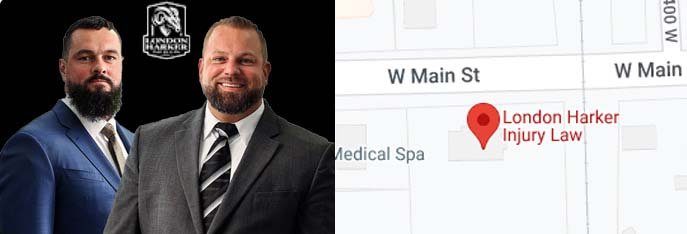Posted on Saturday, September 28th, 2024 at 9:00 am

The aftermath of an accident can be daunting, especially when you don’t know how to pursue compensation for your injuries. You might wonder whether to file a personal injury claim or take your case directly to court with a lawsuit. In brief, a personal injury claim typically involves negotiating with the at-fault party’s insurance company to reach a settlement. On the other hand, a lawsuit may be necessary if those negotiations fail. What’s the difference between a claim and a lawsuit? Knowing when to file a claim vs. a lawsuit can significantly impact your case’s outcome and potential compensation.
At London Harker Injury Law, our Utah personal injury lawyers know how important it is to make the right choice for your situation. Our dedicated team is here to help you weigh your options, pursue the maximum compensation you deserve, and guide you every step of the way. Let’s explore personal injury claims vs. lawsuits and the pros and cons of each option.
What Does Filing a Claim Mean?
Filing a personal injury claim is the first step in seeking compensation for your injuries after an accident. It involves notifying the at-fault party’s insurance company about your injury and negotiating a settlement. This process aims to resolve your case without going to court, saving you time and reducing stress. Here’s an overview of the key steps in a personal injury claim:
- Gathering Evidence: Before filing a claim, you must collect evidence to support your case. This includes medical records, accident reports, witness statements, and photos of the accident scene and your injuries. This evidence will be crucial in proving that the other party caused your injuries and showing the extent of your losses.
- Notifying the Insurance Company: Once you’ve gathered the necessary evidence, the next step is to notify the at-fault party’s insurance company. This usually involves sending a demand letter outlining the details of the accident, the injuries you’ve sustained, and the compensation you’re seeking.
- Negotiating a Settlement: After receiving your claim, the insurance company will typically investigate the accident and may offer a settlement. Negotiating with the insurance company will follow to reach an agreement that fairly compensates you for your injuries and losses.
- Evaluating the Settlement Offer: The insurance company’s initial offer may be lower than what your claim is worth. It’s vital to carefully evaluate any settlement offer with your attorney’s help to ensure it covers all your medical expenses, lost wages, and other losses.
- Accepting or Rejecting the Offer: If you and the insurance company can agree on a fair settlement, the case will be resolved without going to court. However, if the insurance company’s offer is too low or they deny your claim, you may decide to reject the offer and pursue further legal action.
What Does Filing a Lawsuit Mean?
Filing a lawsuit in a personal injury case means taking legal action in court, typically after unsuccessful settlement negotiations. A lawsuit involves a more formal process than filing a claim and can take longer to resolve, but it’s sometimes the only way to secure the compensation you deserve. Here’s an overview of the steps involved in filing a personal injury lawsuit:
- Filing the Complaint: The lawsuit begins with your attorney filing a legal document called a complaint in court. This document outlines your case, including the details of the accident, the injuries you sustained, and the compensation you’re seeking.
- Serving the Defendant: After filing the complaint, the defendant must be officially notified of the lawsuit. This process is called serving the defendant.
- Discovery Phase: Both sides enter the discovery phase once the lawsuit is filed. During this period, each party gathers evidence, interviews witnesses, and exchanges information about the case. This phase allows both sides to understand the facts and arguments that will be presented at trial.
- Pre-Trial Motions and Hearings: Before the case goes to trial, there may be pre-trial motions and hearings. These opportunities allow both parties to argue specific legal issues, such as the admissibility of certain evidence. The judge may also encourage both parties to settle during this time.
- Continuing Settlement Negotiations: Even after filing a lawsuit, settlement negotiations often continue. Sometimes, the pressure of an upcoming trial motivates the at-fault party’s insurance company to offer a better settlement. The lawsuit can be resolved without a trial if an agreement is reached.
- Trial: If no settlement is reached, the case goes to trial. During the trial, both sides present their evidence and arguments before a judge or jury, who will decide whether the defendant is liable for your injuries and, if so, how much compensation you should receive.
Pros and Cons of Filing a Claim vs. Going to Court

Filing an insurance claim has several advantages over taking your personal injury case to court. For one thing, it’s typically a faster and less stressful process. By negotiating directly with the insurance company, you may be able to reach a settlement without the need for a lengthy legal battle. This can save you time and money, as court cases often involve higher legal fees and other costs. Additionally, resolving your case through a claim allows you to maintain more control over the outcome as you and the insurance company work together to reach an agreement.
However, filing a claim also has its downsides. Insurance companies may offer lower settlements that don’t fully cover your damages and might drag out negotiations to pressure you into accepting less. If the insurance company refuses to offer a fair amount, you might have no choice but to consider going to court.
On the other hand, taking your case to court can potentially result in a higher payout. It also allows you to seek punitive damages if the at-fault party’s behavior was particularly reckless. However, the court process is more time-consuming and unpredictable. There’s also the risk of losing the case and receiving nothing. Balancing these pros and cons is crucial when deciding the best approach for your situation.
Contact a Provo Personal Injury Attorney Now
Working with an experienced injury lawyer is the best step you can take to maximize your compensation after an accident. The team at London Harker Injury Law can help you decide whether an insurance claim or lawsuit is better and handle all the legal work while you focus on healing. Call us today at (772) 272-7274 or complete our contact form for a free consultation. We have the legal knowledge and proven track record to answer your questions, explain your legal options, and work with you to help you receive the maximum benefits available.



